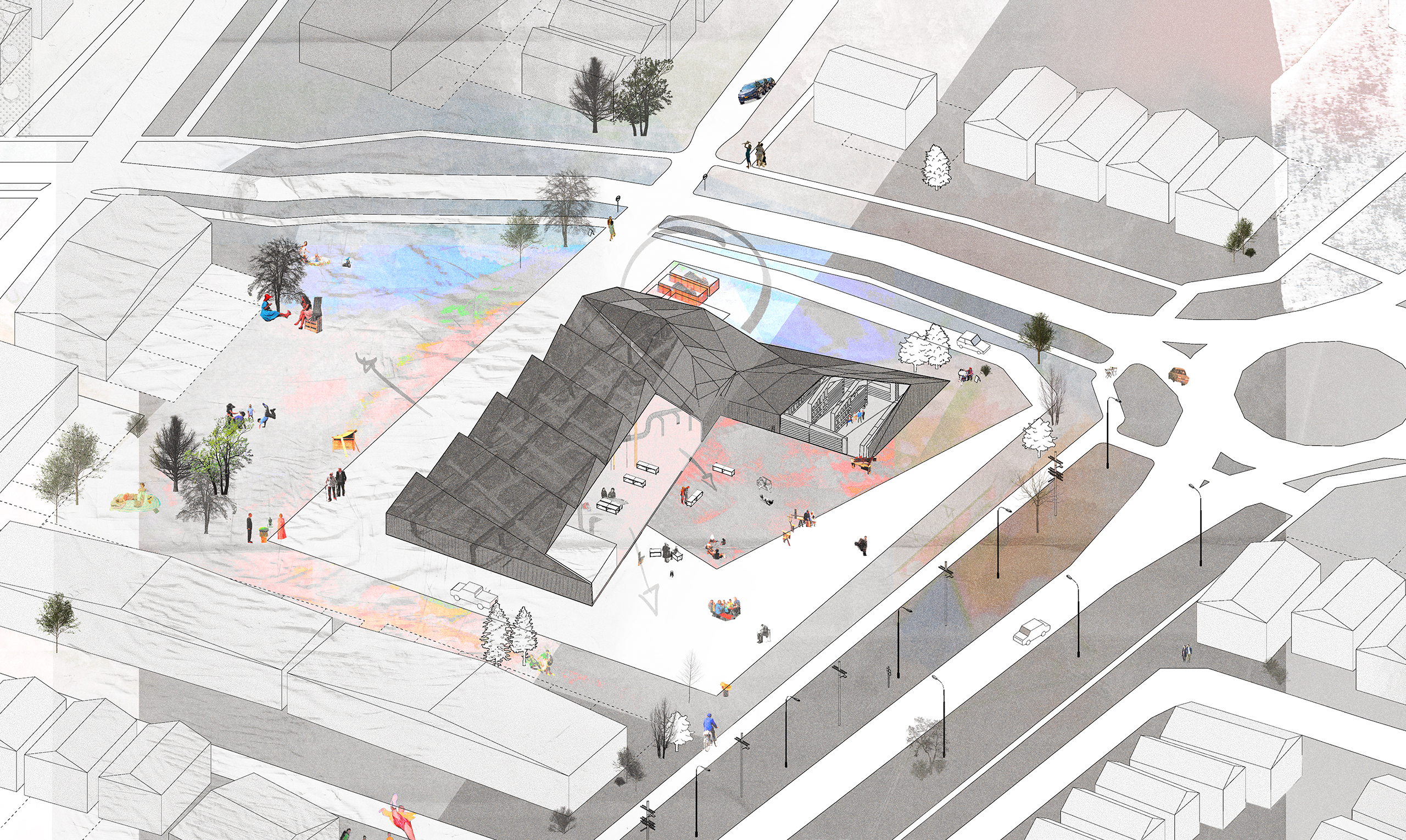Assemblies of Upcycled Infrastructure in the Greater Toronto Area; Renaissance of DIY & Low-Tech Building to Catalyze New Suburbanism
DIY and home renovation projects are rampant in the Greater Toronto Area. This thesis harnesses these affinities and the waste produced from them into assemblies of public furniture and community. The town of Stouffville becomes a testing ground for a suburban vernacular, pushing against the sterile, generic developer-driven public realm. Town residents are offered space to donate leftover material that more often simply accumulates in households; communal tools and a workspace facilitate the reinvention of new uses and forms. Ivan Ilich’s writings argue that people desire to give shape to infrastructure according to their own taste.
Conviviality becomes a primary concern of this thesis, defined by Ilich as the joy borne of the power to be able to make things, and to put them to use in caring for and about others. My parents moved to Stouffville, ON 3 years ago, and, since then, have been incredibly preoccupied with multiple DIY and home renovation projects. The project is borne out of the idea of giving residents, already interested in renovating their private lots, the tools to do so in the public realm. The re-imagining of suburbia, its infrastructure, and any other similarly failing system, can and should be conceived via grassroots organization, rather than lament towards and aspiration for action from growth-fixated governments.
I have begun to compile drafts of manuals and catalogues (What materials are commonly hoarded and encountered? Upcycling is a behemoth of a trend: how to use junk/scavenged material? How to make things?), some physical prototypes (What could this new public infrastructure actually look like? What are the levels of approachability of building 1-1?), as well as a workspace proposal (Where would people actually go to do this? We have a public library and a community gym: why not a community shop?).












